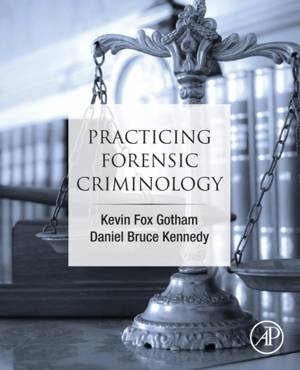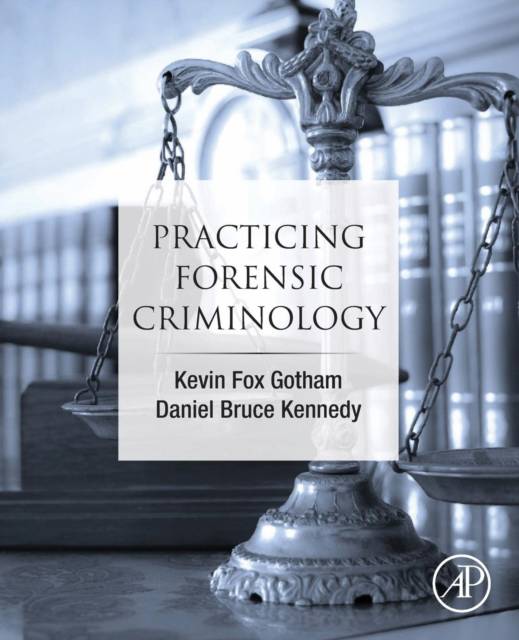
- Retrait gratuit dans votre magasin Club
- 7.000.000 titres dans notre catalogue
- Payer en toute sécurité
- Toujours un magasin près de chez vous
- Retrait gratuit dans votre magasin Club
- 7.000.000 titres dans notre catalogue
- Payer en toute sécurité
- Toujours un magasin près de chez vous
Description
Practicing Forensic Criminology draws on examples from actual court cases and expert witness reports and testimony to demonstrate the merits and uses of substantive criminological knowledge in the applied setting of civil law and the courts. Throughout the book, the authors provide a highly readable, informative discussion of how forensic criminologists can apply their research and teaching skills to assist judges and juries in rendering legal decisions. Engaging and lively, the chapters include excerpts from forensic criminological investigations, in-depth discussions of the methodological and analytical bases of these investigations, and important lessons learned from real litigation cases. Case examples are drawn from the forensic realms of premises liability, administrative negligence, workplace violence, wrongful conviction litigation, and litigation involving police departments and corrections facilities. Well referenced and thoroughly researched, Practicing Forensic Criminology serves as an introduction to the vast and heterogeneous field of forensic social science that is rapidly changing and expanding.
This unique and original book guides readers through the research work of expert witnesses working as consultants, researchers, and crime analysts and investigators. Offering expert criminological insights into litigation cases, the chapters reveal how forensic social science research can be an effective mechanism for reaching beyond the academy to influence public policy reform and legal proceedings. Practicing Forensic Criminology will appeal to a diverse audience, including social scientists, criminal justice students and researchers, expert witnesses, attorneys, judges, and students of judicial proceedings seeking to understand the value and impact of criminology in the civil court system.
Spécifications
Parties prenantes
- Auteur(s) :
- Editeur:
Contenu
- Nombre de pages :
- 300
- Langue:
- Anglais
Caractéristiques
- EAN:
- 9780128155950
- Date de parution :
- 30-05-19
- Format:
- Livre broché
- Format numérique:
- Trade paperback (VS)
- Dimensions :
- 190 mm x 235 mm
- Poids :
- 521 g







